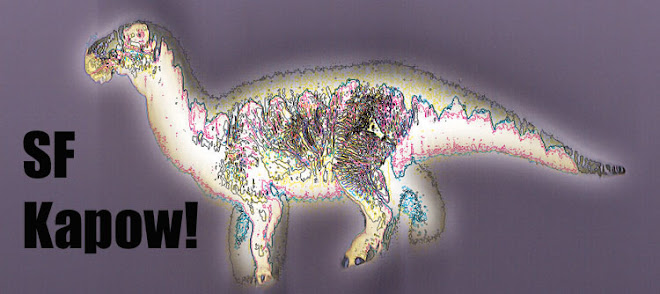So many highs, so many lows.
I've been talking about the show a lot with my girlfriend, She Who Is Awesome, and we've come to slightly different conclusions. I like Dollhouse a lot, in spite of its flaws. She's been feeling more ambivalent about it. In fact, before last night's back-to-back episodes of "Meet Jane Doe" and "A Love Supreme," she was pretty much not even going to buy the DVD of the second season.
I see her point. Dollhouse has been wildly uneven, even compared with the first and second seasons of Buffy and Angel. And Firefly, when looked at in proper order is remarkably low on filler episodes and/or craptastic ones.
So here are my complaints about Dollhouse's second season, in particular:
• Slow start. Boy, it didn't exactly get going at a good pace. It felt like we were back in client-of-the-week mode there.
• Lack of focus. After the slam-bang ending to the previous season, plus "Epitaph One," it felt like the show was on track. It wasn't a hint of what was going on, it was a friggin' roadmap. And it was a map to very cool places. The fact that we didn't immediately jump into the "Epitaph One" storyline was a bit of a letdown.
• Echo? What Echo? This is only partly a complaint. Having a blank slate as your main character is, well, kind of a weird choice. But in the first few episodes, and even in some of the better, later ones of the season, Echo is either marginalized or bounces back and forth between various states. It doesn't feel like a linear evolution from doll to fully realized person. In fact, in the first three or four episodes, it sometimes felt like they were being shown out of order, with Echo farther along in earlier shows than later ones.
But I think these flaws are compensated for by both the good that's made it onto the screen, and by the potential the writers are finally starting to mine.
Ah, potential. It's been the show's bete noir in some ways. Defenders like myself point out what an awesome, mindblowing concept the show is playing with. Those of a more critical bent point out that the potential has often been squandered in favour of "Echo's a dominatrix" jokes.
But the potential, and the way it's being realized, is the core of my defense of Dollhouse. In SF novels, you often see a single idea worked out in full, with all its myriad implications fleshed out. In TV SF? Not so much. Remember that transporter malfunction on ST:TNG that turned Picard, Guinan, Ro, et al into teenagers? Fountain of youth, or single-episode plot device never to be mentioned again? Just Star Trek alone will give you hundreds of dropped SFnal threads.
Dollhouse, however, is rigorously working out the implications of its technology. We start with programmable dolls, the Swiss army knives of the doll world. Since then we've seen post-imprinting dolls, multi-persona dolls, dolls with their own persona, upgraded. We've seen the awesome "Epitaph One," which dragged everything to its dystopian conclusion. We're seeing the technology advance, from slow imprinting to faster, all the way to distance imprinting and wiping, and how that changes the balance of power between those who control the technology, and those who are its victims.
Perfect television? No. But Dollhouse is arguably the most well thought out SF premise on television in the past several decades.

No comments:
Post a Comment